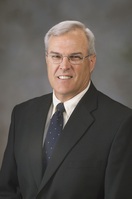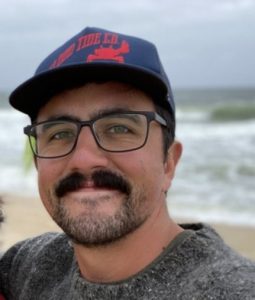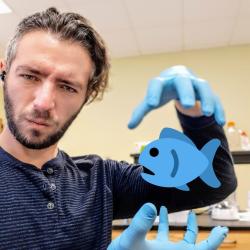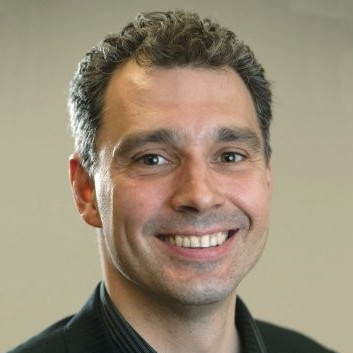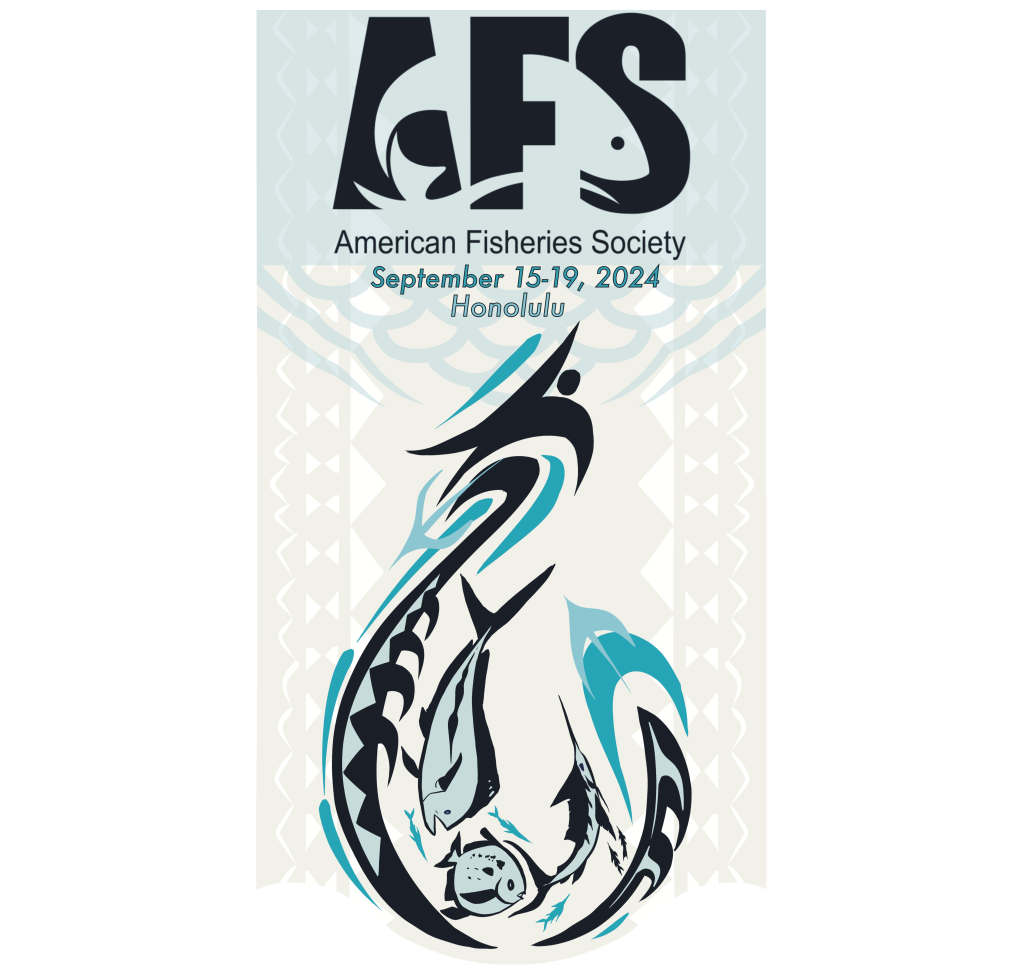Jump to...
Saturday, September 14
Full-day classes
Communicating Research with Effective Data Visualization & Effective Storytelling (Part 1)
Course schedule – 9:00 am -5:00 pm
This two-day series will focus on the process of effectively communicating research findings through data visualization and storytelling using modern practices and considerations. Day one will explore what forms of visualizations are effective for different data, how to provide information without it being overwhelming, and aesthetic considerations for clarity and accessibility. This workshop will combine theoretical discussion with hands-on instruction to apply the concepts to a real fisheries dataset. Basic proficiency with the R programming language is required. Day two will integrate the knowledge from day one and discuss how posters and presentations can be structured to effectively guide the audience through a story about the research, focusing on the aspects of storytelling that make stories different from sterile information. This workshop will combine theoretical discussion with hands-on instruction to apply the concepts to the creation of a slideshow presentation. Basic proficiency with Microsoft PowerPoint is required.
Instructors:
- Pavel Dimens, Cornell University
- Megumi Oshima, NOAA Pacific Islands Fisheries Science Center
Data Wrangling using the Tidyverse in R
Course schedule – 8:00 am -5:00 pm
This course is an introduction to the fundamentals of tidying and wrangling data using R. We will focus on the process of data wrangling beginning with raw data to clean, organize, and summarize the data to answer specific questions. We will use the Tidyverse packages to perform these steps because Tidyverse packages are more intuitive than BaseR functions and can be integrated into visualization packages like ggplot2. We will use fisheries datasets in walkthrough style lectures and examples as well as in independent exercises. The format is meant to introduce participants to different functions and then reinforce knowledge through iterative examples. The workshop uses RMarkdown format which can be used to create reports, but experience with RMarkdown is not required. Experience with R would be beneficial, but extensive experience is not required.
Instructors:
- Shaley Valentine, Illinois Natural History Survey – University of Illinois at Urbana-Champaign
Introductory Bayesian Inference with JAGS for Fish Biologists
Course schedule – 8:00 am -5:00 pm
Instructors:
- Henry Hershey, US Army Corps of Engineers
- Benjamin Staton, Columbia Inter-Tribal Fish Commission
Plain, Simple, and Concise Writing
Course schedule – 8:00 am -4:00 pm
Learn how to write your manuscript, thesis, dissertation, or any other document using 25% fewer words and without losing any critical content in this highly interactive and hands-on workshop. You will learn how to target your audience and to write in the active voice. You will practice what you learn through numerous exercises and apply the lessons to your writing with personal coaching from the instructor. A highly acclaimed workshop designed especially for natural resource professionals.
Instructors:
- Steve McMullin, McMullin Training and Consulting; AFS Past President
Morning Classes
Afternoon Classes
Our Great CE Course
Lorem ipsum dolor sit amet, consectetur adipiscing elit. Ut elit tellus, luctus nec ullamcorper mattis, pulvinar dapibus leo. Lorem ipsum dolor sit amet, consectetur adipiscing elit. Ut elit tellus, luctus nec ullamcorper mattis, pulvinar dapibus leo. Lorem ipsum dolor sit amet, consectetur adipiscing elit. Ut elit tellus, luctus nec ullamcorper mattis, pulvinar dapibus leo. Lorem ipsum dolor sit amet, consectetur adipiscing elit. Ut elit tellus, luctus nec ullamcorper mattis, pulvinar dapibus leo.
Instructors:
- Great Instructor 1, Organization
- Great Instructor 2, Organization
Sunday, September 15
Full day classes
Communicating Research with Effective Data Visualization & Effective Storytelling (Part 2)
Course schedule – 9:00 am -5:00 pm
This two-day series will focus on the process of effectively communicating research findings through data visualization and storytelling using modern practices and considerations. Day one will explore what forms of visualizations are effective for different data, how to provide information without it being overwhelming, and aesthetic considerations for clarity and accessibility. This workshop will combine theoretical discussion with hands-on instruction to apply the concepts to a real fisheries dataset. Basic proficiency with the R programming language is required. Day two will integrate the knowledge from day one and discuss how posters and presentations can be structured to effectively guide the audience through a story about the research, focusing on the aspects of storytelling that make stories different from sterile information. This workshop will combine theoretical discussion with hands-on instruction to apply the concepts to the creation of a slideshow presentation. Basic proficiency with Microsoft PowerPoint is required.
Instructors:
- Pavel Dimens, Cornell University
- Megumi Oshima, NOAA Pacific Islands Fisheries Science Center
From Fish Collection to Data Analysis: A Primer on Monitoring Fish Populations
Course schedule – 9:00 am -5:00 pm
Lorem ipsum dolor sit amet, consectetur adipiscing elit. Ut elit tellus, luctus nec ullamcorper mattis, pulvinar dapibus leo. Lorem ipsum dolor sit amet, consectetur adipiscing elit. Ut elit tellus, luctus nec ullamcorper mattis, pulvinar dapibus leo. Lorem ipsum dolor sit amet, consectetur adipiscing elit. Ut elit tellus, luctus nec ullamcorper mattis, pulvinar dapibus leo. Lorem ipsum dolor sit amet, consectetur adipiscing elit. Ut elit tellus, luctus nec ullamcorper mattis, pulvinar dapibus leo.
Instructors:
- Tawni Riepe, Colorado Parks & Wildlife
- Estevan Vigil, Colorado Parks & Wildlife
- Audrey Harris, Idaho Fish & Game
- Kristina Morben, Colorado Parks & Wildlife
Intermediate Bayesian Inference with JAGS for Fish Biologists
Course schedule – 8:00 am -5:00 pm
This two-day workshop will cover introductory and intermediate topics in applied Bayesian inference and is intended for fisheries biologists and scientists seeking to broaden their analytical knowledge. Instruction will include a mixture of lecture and guided coding tutorials using programs R and JAGS to introduce participants to Bayesian inference and its computational implementation. Lecture topics covered include fundamentals of Bayesian inference, distinctions between Bayesian and classical inference, prior and posterior distributions, basics of Markov Chain Monte Carlo methods, convergence diagnostics, reporting methods, and posterior predictive checking of assumptions. These topics will be explored using example data analyses that range in complexity from basic means comparisons to general(ized) linear (mixed) models, concluding with state-space expressions of Cormack-Jolly-Seber models. A refresher/overview of each model will be provided to ensure participants understand the model prior to seeing its representation in JAGS code. Participants will need a laptop with the correct software installed.
Instructors:
- Henry Hershey, US Army Corps of Engineers
- Benjamin Staton, Columbia Inter-Tribal Fish Commission
Plain, Simple, and Concise Writing
Course schedule – 8:00 am -4:00 pm
Learn how to write your manuscript, thesis, dissertation, or any other document using 25% fewer words and without losing any critical content in this highly interactive and hands-on workshop. You will learn how to target your audience and to write in the active voice. You will practice what you learn through numerous exercises and apply the lessons to your writing with personal coaching from the instructor. A highly acclaimed workshop designed especially for natural resource professionals.
Instructors:
- Steve McMullin, McMullin Training and Consulting; AFS Past President
Science Communication for Fisheries Professionals: Skill-building for More Effective Outreach & Engagement
Course schedule – 8:00 am -4:00 pm
Our work as fisheries professionals has critical implications for the future of fisheries and the human communities that rely on aquatic resources, but fisheries professionals are not taught communication skills required to address multiple audiences. This workshop will equip attendees with practical techniques and tools to increase the efficiency and effectiveness of their communication efforts. We focus on three main elements: 1) Audience connection – the importance of finding connections with your audience, including those that can be more challenging, 2) Effective messaging – how to structure and refine your message to make it impactful and relatable, and 3) Better presentations – a breakdown of our standard form of communication to demonstrate how it can more effectively help any audience understand, remember, and believe the science that is being presented. Opportunities to practice skills and apply training throughout the conference will be provided.
Instructors:
- Julie Claussen, Fisheries Conservation Foundation
- Great Instructor 2, Organization
Morning classes
Leading at All Levels of AFS
Lorem ipsum dolor sit amet, consectetur adipiscing elit. Ut elit tellus, luctus nec ullamcorper mattis, pulvinar dapibus leo. Lorem ipsum dolor sit amet, consectetur adipiscing elit. Ut elit tellus, luctus nec ullamcorper mattis, pulvinar dapibus leo. Lorem ipsum dolor sit amet, consectetur adipiscing elit. Ut elit tellus, luctus nec ullamcorper mattis, pulvinar dapibus leo. Lorem ipsum dolor sit amet, consectetur adipiscing elit. Ut elit tellus, luctus nec ullamcorper mattis, pulvinar dapibus leo.
Instructors:
- Brian Murphy, AFS Past President; Virginia Tech Emeritus
- Great Instructor 2, Organization
Our Great CE Course
Lorem ipsum dolor sit amet, consectetur adipiscing elit. Ut elit tellus, luctus nec ullamcorper mattis, pulvinar dapibus leo. Lorem ipsum dolor sit amet, consectetur adipiscing elit. Ut elit tellus, luctus nec ullamcorper mattis, pulvinar dapibus leo. Lorem ipsum dolor sit amet, consectetur adipiscing elit. Ut elit tellus, luctus nec ullamcorper mattis, pulvinar dapibus leo. Lorem ipsum dolor sit amet, consectetur adipiscing elit. Ut elit tellus, luctus nec ullamcorper mattis, pulvinar dapibus leo.
Instructors:
- Great Instructor 1, Organization
- Great Instructor 2, Organization
Afternoon classes
Futurecasting: An AFS-wide Adaptive Planning Framework to Build a Successful Future
The future is uncertain, but future outcomes can be shaped by guiding actions through Futurecasting, which promotes progress towards long-term goals.
Futurecasting helps identify big-picture goals that then guide decisions, prioritizing actions that ensure progress towards big-picture goals, while also allowing adjustment to unpredictable challenges.
Participants will learn how to develop a ‘strategic mindset’ to identify and prioritize actions that promote success. (1) A brief introduction will explain the purpose of Futurecasting and the benefits of long-term, big-picture goals. Participants then will apply Futurecasting in small break-out groups to identify (2) ‘big picture’ goals that align with the AFS mission, (3) resources needed, and (4) actions to help AFS implement these goals. (5) Ideas will be visualized in real-time, and digitally captured for synthesis to share with AFS leadership and members.
Members at any career stage are welcome to attend this session; broad participation ensures diverse perspectives and creative solutions.
Instructors:
- Marlis Douglas, University of Arkansas; AFS Strategic Planning Committee
- Great Instructor 2, Organization
Our Great CE Course
Lorem ipsum dolor sit amet, consectetur adipiscing elit. Ut elit tellus, luctus nec ullamcorper mattis, pulvinar dapibus leo. Lorem ipsum dolor sit amet, consectetur adipiscing elit. Ut elit tellus, luctus nec ullamcorper mattis, pulvinar dapibus leo. Lorem ipsum dolor sit amet, consectetur adipiscing elit. Ut elit tellus, luctus nec ullamcorper mattis, pulvinar dapibus leo. Lorem ipsum dolor sit amet, consectetur adipiscing elit. Ut elit tellus, luctus nec ullamcorper mattis, pulvinar dapibus leo.
Instructors:
- Great Instructor 1, Organization
- Great Instructor 2, Organization
Meet the Instructors!
